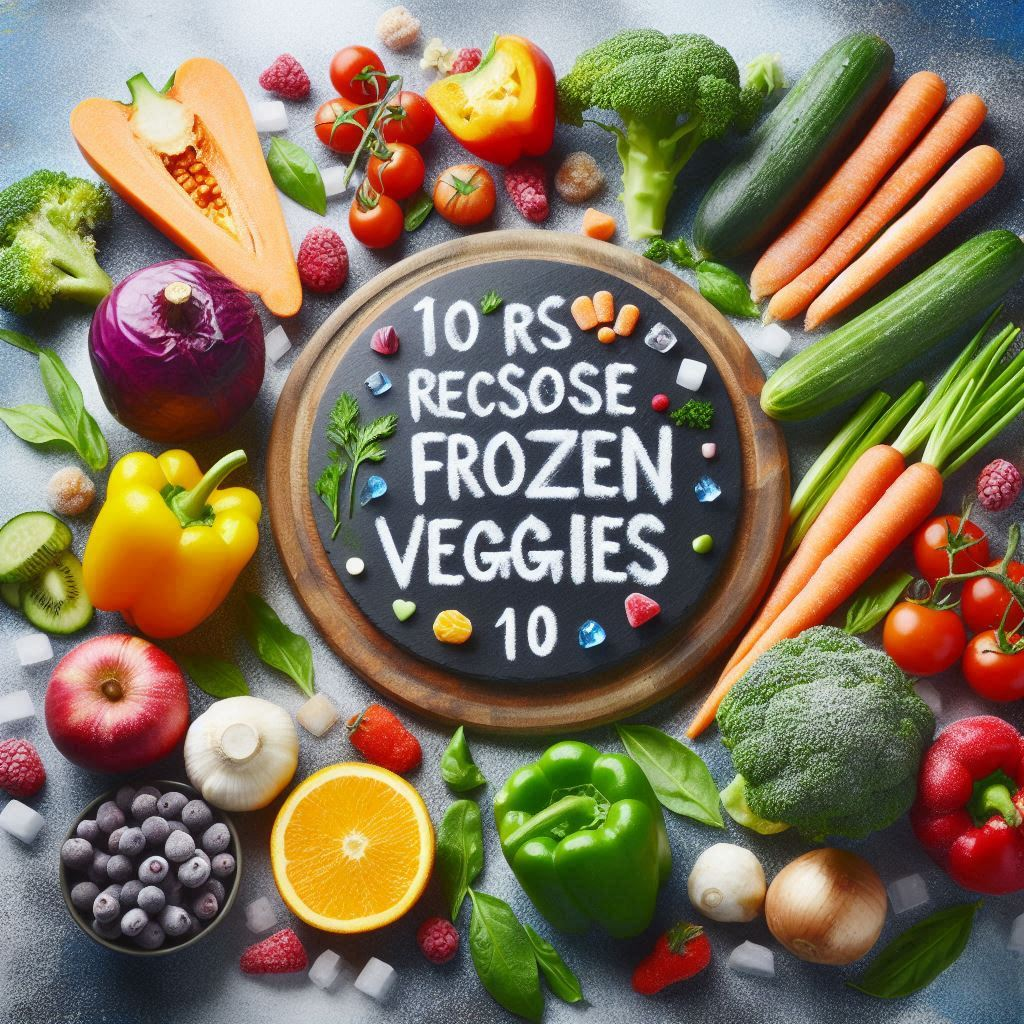
10 Amazing Reasons to Choose Frozen Veggies!
Discover the benefits of frozen veggies for health and convenience. Learn why they are a smart choice for your meals!
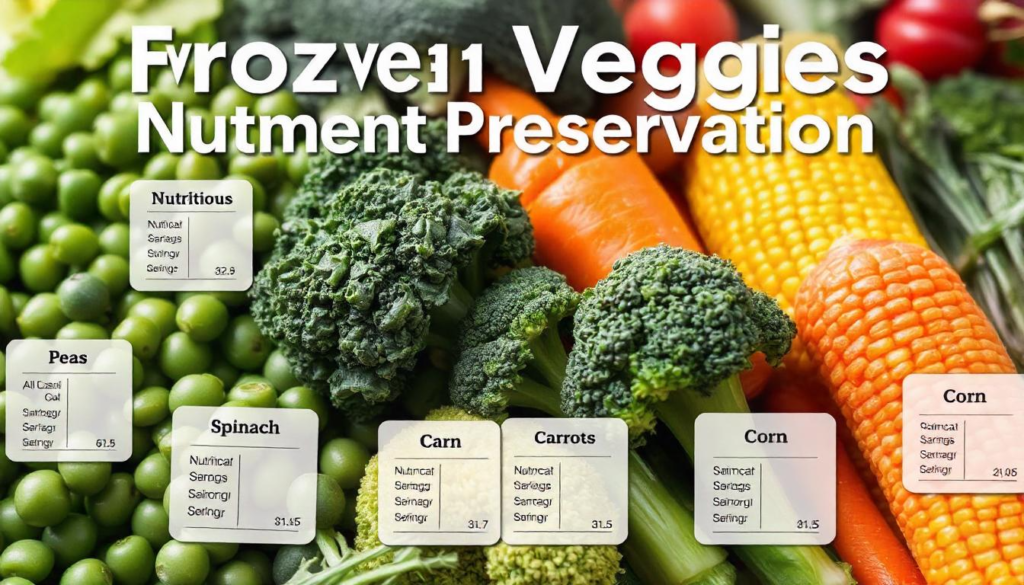
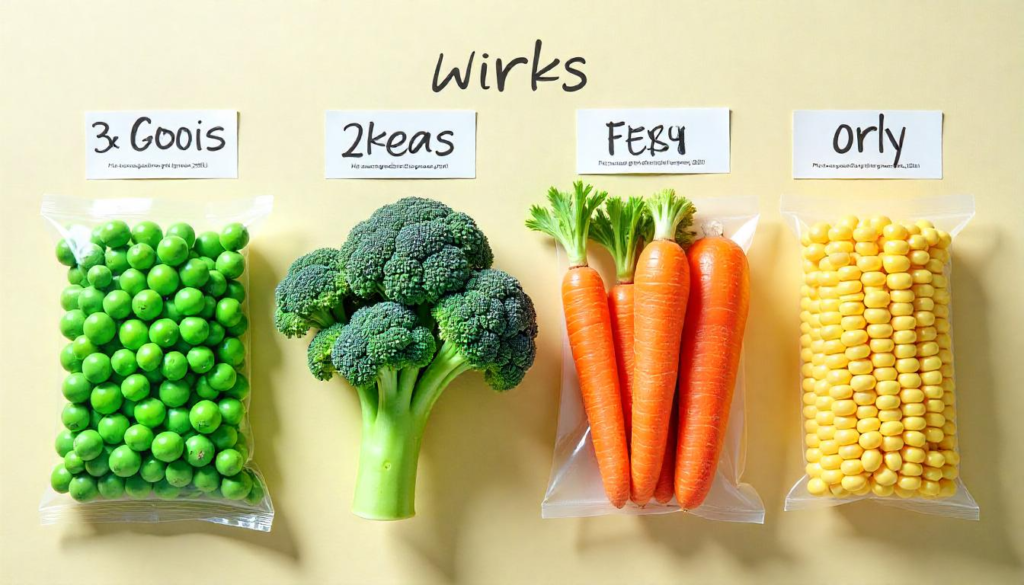
Frozen Veggies: An Introduction
Frozen vegetables are a convenient and nutritious option for anyone looking to maintain a healthy diet without compromising on taste or quality. Unlike fresh produce, frozen veggies are picked at their peak ripeness and quickly frozen to preserve their nutritional content. This article will explore the many reasons why you should consider adding frozen vegetables to your meals, along with their nutritional benefits.
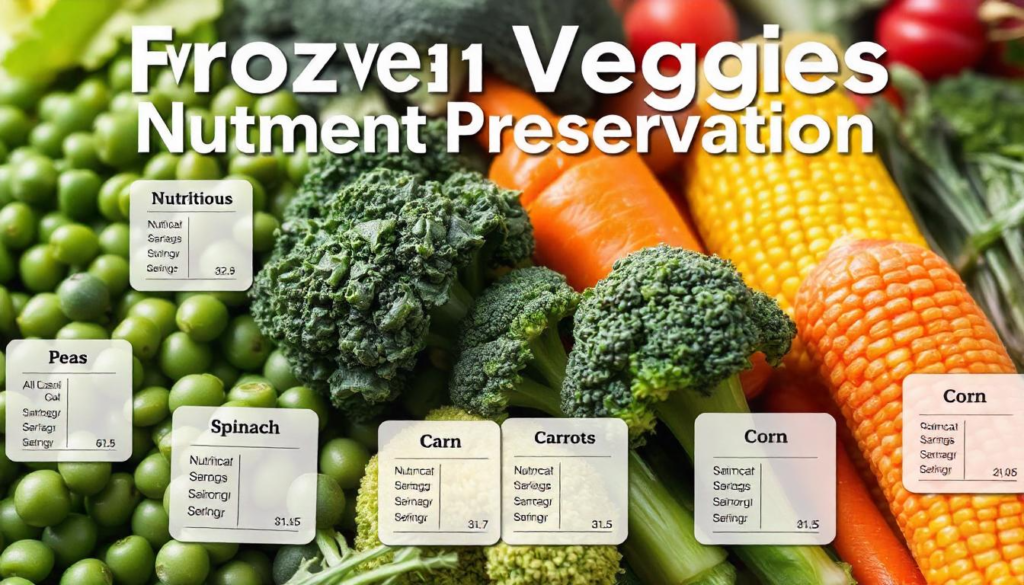
1. Frozen Veggies: Nutrient Preservation
The Freezing Process
The process of freezing vegetables involves quickly reducing their temperature to lock in nutrients. This method helps preserve vitamins, minerals, and antioxidants that might otherwise degrade over time in fresh produce.
Comparison with Fresh Vegetables
While fresh vegetables are undoubtedly healthy, their nutrient content can diminish during transportation and storage. Frozen vegetables, on the other hand, maintain their nutritional value from the moment they are picked and frozen.
Nutritional Benefits
Frozen veggies retain essential vitamins and minerals such as vitamin C, vitamin A, folate, and potassium. They are also rich in antioxidants, which help protect the body from harmful free radicals.
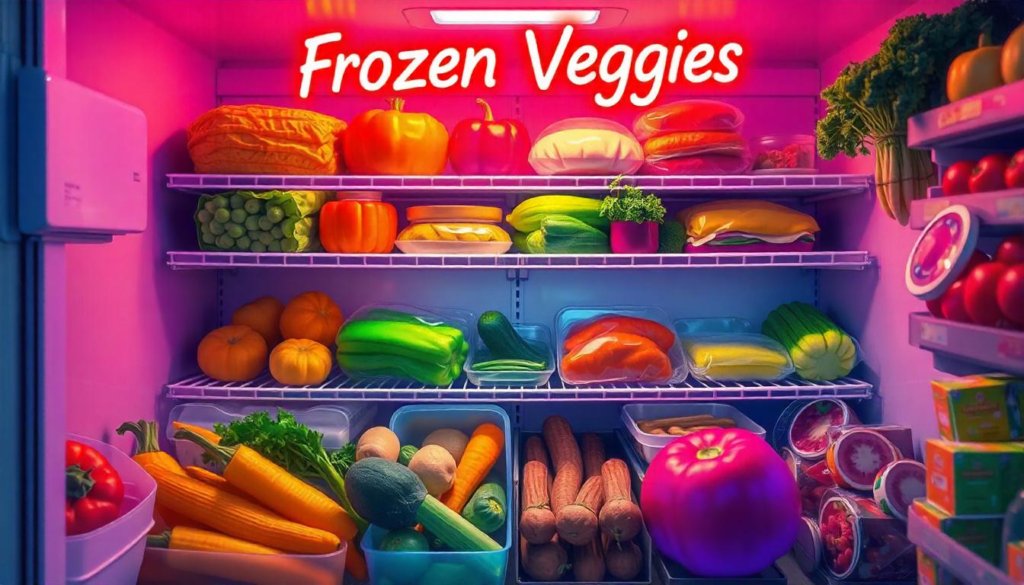
2. Frozen Veggies: Convenience and Availability
Year-Round Availability
One of the most significant advantages of frozen vegetables is their availability throughout the year. Regardless of the season, you can enjoy a wide variety of veggies that might not be in season or locally available.
Easy Storage and Long Shelf Life
Frozen vegetables are easy to store and have a long shelf life, making them a practical choice for busy individuals and families. They can be kept in the freezer for months without losing their nutritional quality.
Quick and Easy Preparation
Frozen veggies require minimal preparation, as they are often pre-washed and pre-cut. This convenience saves time and effort in the kitchen, allowing for quick and healthy meals.
3. Frozen Veggies: Cost-Effectiveness
Affordability
Frozen vegetables are often more affordable than their fresh counterparts. They are harvested and processed when they are most abundant, resulting in lower prices.
Reduced Food Waste
Since frozen vegetables have a longer shelf life, there is less risk of them spoiling before you have a chance to use them. This reduces food waste and helps you make the most of your grocery budget.
Bulk Buying
Buying frozen vegetables in bulk can further reduce costs and ensure you always have a supply of nutritious ingredients on hand.
4. Frozen Veggies: Variety and Versatility
Wide Range of Options
The variety of frozen vegetables available is extensive, from staple items like peas, corn, and spinach to more unique options like artichoke hearts and edamame.
Versatile Ingredient
Frozen vegetables can be used in a wide range of recipes, from soups and stews to stir-fries and casseroles. They can be steamed, roasted, sautéed, or microwaved, making them a versatile addition to any meal.
Enhancing Meals
Adding frozen vegetables to your dishes can enhance their nutritional value and flavor. They can be easily incorporated into both simple and complex recipes, providing a boost of vitamins and minerals.
5. Frozen Veggies: Nutritional Comparison
Nutritional Values of Common Frozen Vegetables
Here is a comparison of the nutritional values of some common frozen vegetables:
| Frozen Vegetable | Calories (per 100g) | Vitamin C (mg) | Vitamin A (IU) | Folate (mcg) | Potassium (mg) |
|---|---|---|---|---|---|
| Frozen Peas | 81 | 14.2 | 765 | 65 | 244 |
| Frozen Spinach | 23 | 9.8 | 469 | 194 | 558 |
| Frozen Broccoli | 34 | 64.9 | 623 | 63 | 316 |
| Frozen Carrots | 35 | 2.6 | 8359 | 19 | 320 |
| Frozen Corn | 86 | 6.8 | 187 | 42 | 270 |
Health Benefits
- Frozen Peas: Rich in protein, fiber, and antioxidants, peas support digestion and overall health.
- Frozen Spinach: High in iron, magnesium, and vitamins A and C, spinach promotes healthy blood and immune function.
- Frozen Broccoli: Packed with vitamins C and K, fiber, and antioxidants, broccoli supports immune health and digestion.
- Frozen Carrots: High in beta-carotene (vitamin A), carrots support eye health and immune function.
- Frozen Corn: Provides fiber, vitamins B and C, and antioxidants, supporting digestion and overall health.
6. Frozen Veggies: Supporting a Healthy Diet
Balanced Nutrition
Incorporating frozen vegetables into your diet ensures a balanced intake of essential nutrients. They provide a variety of vitamins, minerals, and fiber that support overall health.
Weight Management
Frozen vegetables are low in calories and high in fiber, making them an excellent choice for weight management. They help you feel full and satisfied without adding excess calories to your diet.
Heart Health
Many frozen vegetables are rich in potassium, which helps regulate blood pressure and supports heart health. Additionally, their fiber content can help lower cholesterol levels.
7. Frozen Veggies: Environmental Impact
Reduced Food Waste
Frozen vegetables help reduce food waste by extending the shelf life of produce. This means less food ends up in landfills, contributing to a more sustainable food system.
Efficient Transportation
The process of freezing vegetables allows for more efficient transportation and storage. This can result in a smaller carbon footprint compared to transporting fresh produce over long distances.
Sustainable Farming Practices
Many companies that produce frozen vegetables prioritize sustainable farming practices. This includes using less water, reducing pesticide use, and promoting soil health.
8. Frozen Veggies: Safety and Quality
Minimal Processing
Frozen vegetables undergo minimal processing, retaining most of their natural nutrients and flavors. The quick freezing process helps preserve their quality without the need for added preservatives.
Safe Handling
Frozen vegetables are safe to handle and consume. They are often blanched before freezing, which helps kill harmful bacteria and pathogens.
Quality Control
The production of frozen vegetables involves strict quality control measures. This ensures that the vegetables meet high standards of safety and quality before reaching consumers.
9. Frozen Veggies: Accessibility and Inclusivity
Access for All
Frozen vegetables provide a convenient and affordable option for individuals and families with limited access to fresh produce. They help bridge the gap between affordability and nutrition.
Dietary Inclusivity
Frozen vegetables cater to various dietary preferences and restrictions, including vegetarian, vegan, gluten-free, and low-carb diets. They are versatile ingredients that can be used in a wide range of meals.
Global Availability
Frozen vegetables are available in grocery stores worldwide, making them accessible to people of all backgrounds and regions. This global availability ensures that everyone can enjoy the benefits of nutritious vegetables.
10. Frozen Veggies: Culinary Creativity
Experimenting with Recipes
Frozen vegetables offer endless possibilities for culinary creativity. They can be used in traditional dishes or experimented with in new and innovative recipes.
Enhancing Flavors
The freezing process can enhance the natural flavors of vegetables, making them a delicious addition to any meal. Their versatility allows for a wide range of flavor combinations and culinary techniques.
Easy Substitutions
Frozen vegetables can be easily substituted for fresh vegetables in most recipes. This flexibility allows you to enjoy your favorite dishes year-round, regardless of seasonal availability.
Frozen Veggies: Conclusion
Recap of Benefits
In summary, frozen vegetables offer numerous benefits, including nutrient preservation, convenience, cost-effectiveness, variety, and versatility. They support a healthy diet, reduce environmental impact, ensure safety and quality, provide accessibility, and inspire culinary creativity.
Encouragement to Choose Frozen Veggies
Choosing frozen vegetables is a smart and nutritious choice that can enhance your meals and support your overall well-being. Whether you are looking to save time in the kitchen, reduce food waste, or boost your nutrient intake, frozen veggies are a reliable and beneficial option.
Final Thoughts
Incorporating frozen vegetables into your daily diet can lead to better health outcomes and a more sustainable lifestyle. Embrace the convenience and nutritional value of frozen veggies and enjoy the many benefits they have to offer. Happy cooking and healthy eating! 😊
Are frozen vegetables as nutritious as fresh vegetables?
How long can I store frozen vegetables in my freezer?
Are organic frozen vegetables available?
Can I refreeze frozen vegetables after thawing?
How do frozen vegetables help reduce food waste?
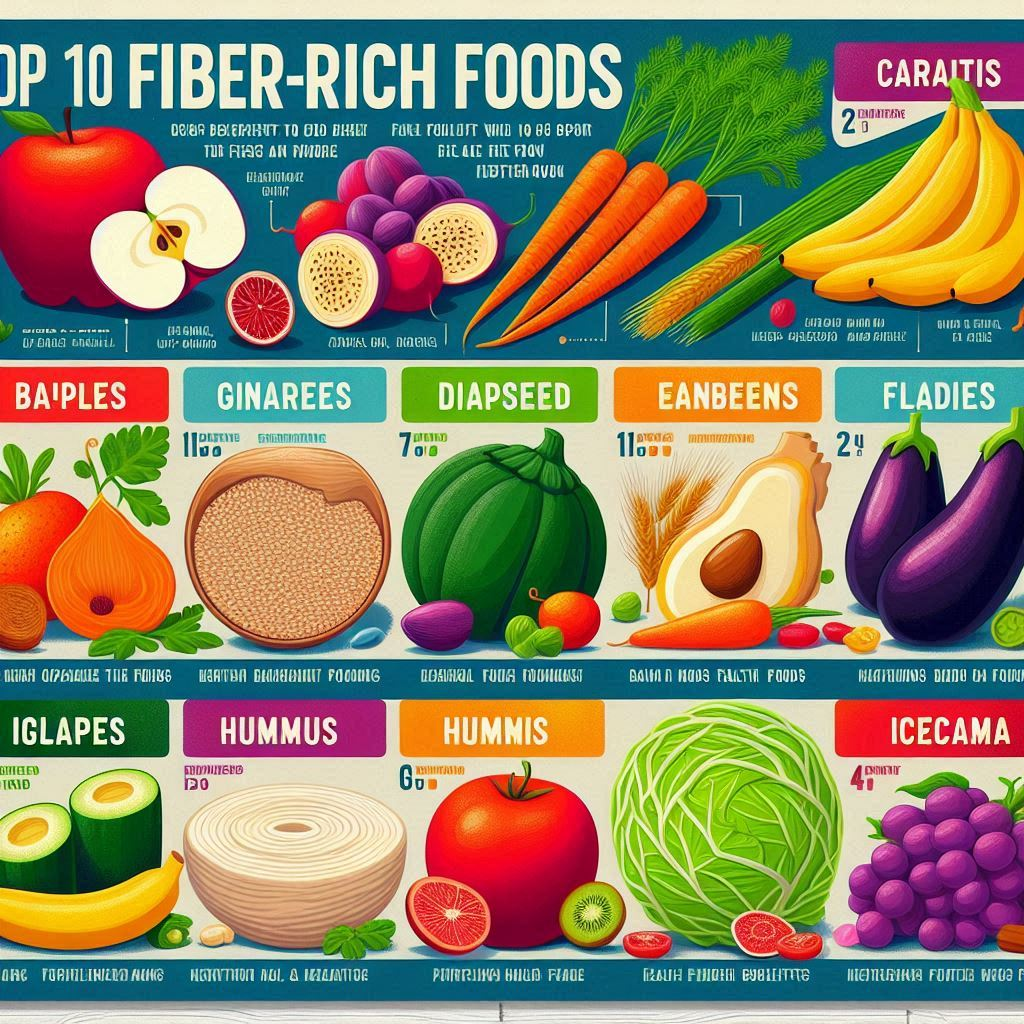

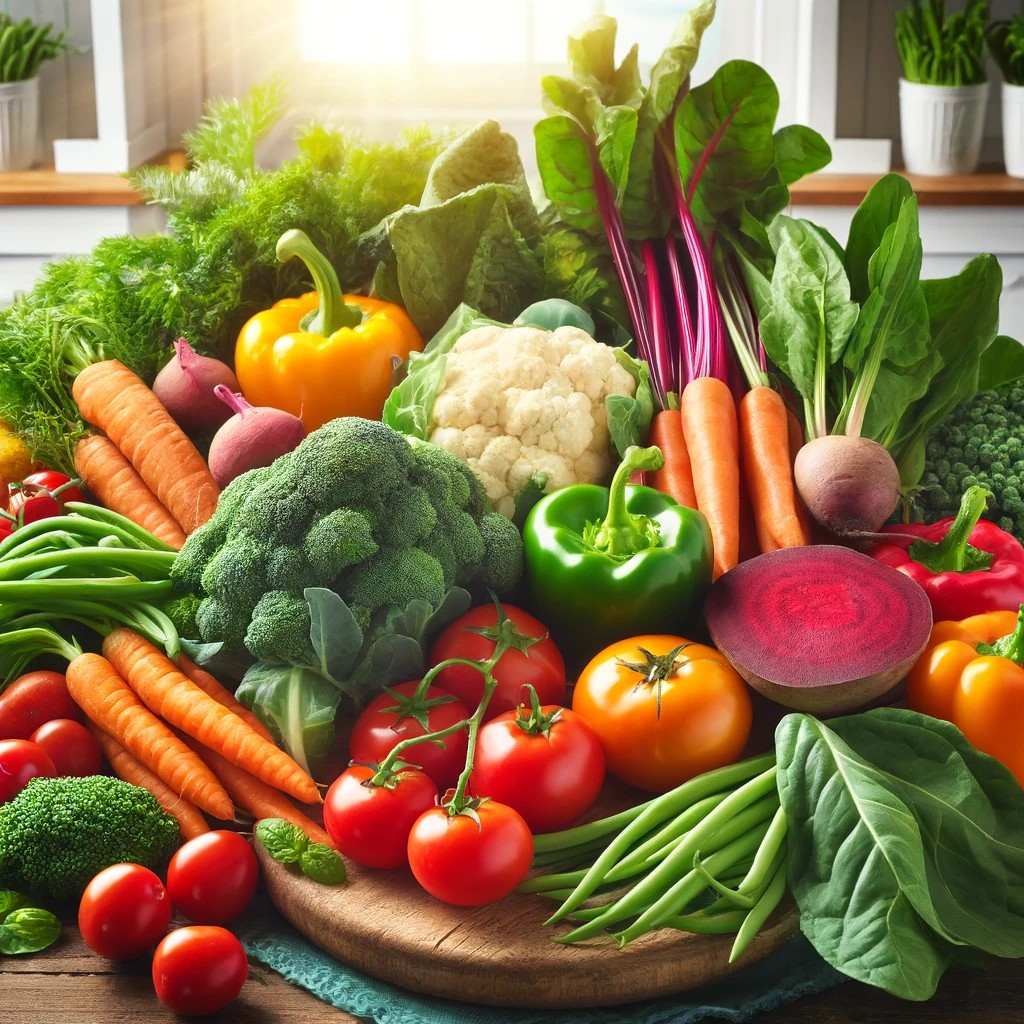

2 Comments
Pingback:
Pingback: